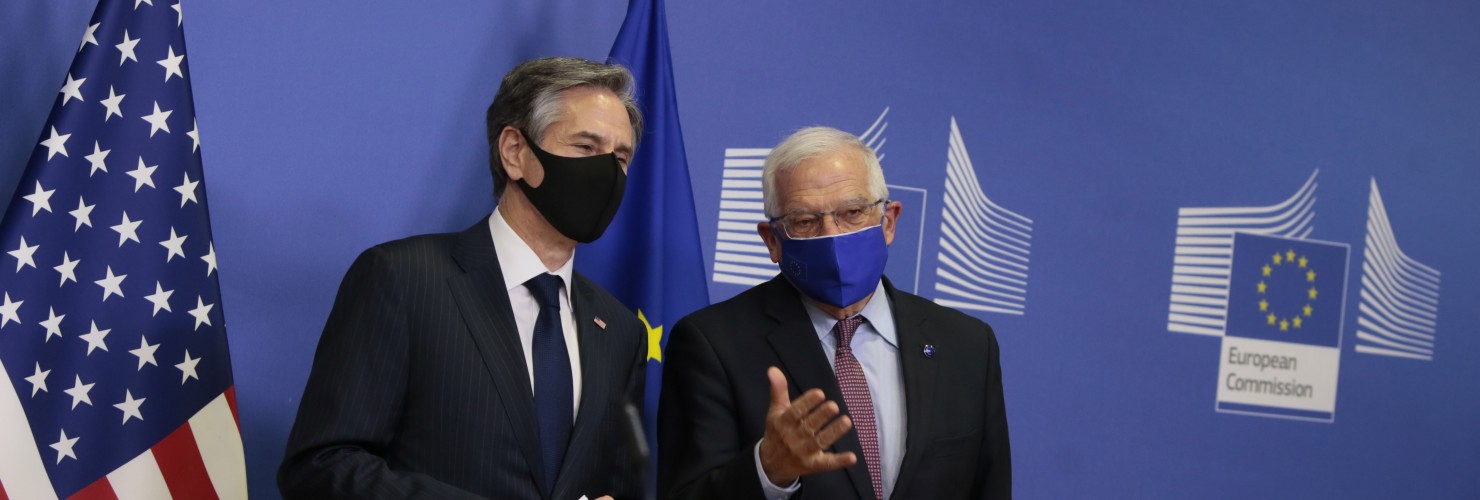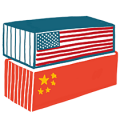

Likeminded coordination boosted, with Chinese pushback
A concerted push by European and likeminded partners to coordinate responses to China – including the imposition of sanctions for human rights abuses – has elicited strong Chinese backlash.
On 22 March, the EU Foreign Affairs Council sanctioned four Chinese officials and a section of the Xinjiang Public Security Bureau for human rights abuses in Xinjiang under the EU’s global human rights sanctions regime. This move was coordinated with the US, the UK and Canada –Washington, London and Ottawa imposed similar sanctions shortly after the EU – marking the first coordinated Western action against Beijing since President Joe Biden took office in the US.
The EU has long tried to avoid confrontation with Beijing and to stress the cooperative elements of its relationship with China, although its position has shifted in recent years. The EU’s sanctions on four Chinese officials were carefully calibrated – for example, it didn’t blacklist Xinjiang Party Secretary Chen Quanguo, the top official in the region (read more about Chen in the profile below). But it was the first time since the suppression of the Tiananmen Square protests in 1989 that the EU resorted to this tool.
China immediately retaliated against the EU’s sanctions by imposing its own sanctions on 10 individuals and four entities in the EU that it claims “severely harm China's sovereignty and interests and maliciously spread lies and disinformation.” China’s asymmetric escalation, which was likely a reflection of Beijing’s concerns regarding a potential Western coalition to confront China and an attempt to warn Europe against closer coordination with the US and other allies. However, this could backfire. It will induce EU stakeholders to prioritize risks and vulnerabilities in their China relationship and give momentum to ongoing international coalition-building efforts.
It remains to be seen how Europe will respond to China’s retaliation – and whether other individuals and organizations in the UK, Canada or the US will also be targeted. China’s counter-sanctions against Europeans also pushed the issue of transatlantic coordination on relations with Beijing even higher on the agenda of US Secretary of State Antony Blinken, who was visiting Brussels for talks with EU, Belgian and NATO officials. On 24 March, Blinken and the High Representative of the European Union Josep Borrell launched a US-EU dialogue on China. According to Borrell, the topics discussed will include reciprocity, resilience, human rights, security and multilateralism as well as climate change as a field for cooperation with China.
The Brussels trip was the last stop in Blinken’s tour of allied states, which began on 12 March with visits to Japan and South Korea. He also went to Alaska for meetings with a Chinese delegation led by top diplomats Yang Jiechi and Wang Yi. After an acrimonious beginning, both sides claimed to have discussed a range of substantive matters from post-covid-19 economic recovery to Taiwan and Hong Kong. Despite this, the talks laid bare the deep-seated tensions between the two countries.
MERICS analysis: “The Anchorage meeting between Blinken and his Chinese counterparts showed that the US under President Joe Biden will largely maintain the previous administration’s tough stance on China, although its approach will have a stronger focus on working with allies and likeminded partners. Blinken’s trips to Asia and to Europe are attempts by the Biden administration to revitalize alliances and partnerships that had suffered under the Trump administration and to push for a coalition to stand up to China flexing its muscles in the international arena.” Matt Ferchen, MERICS Head of Global China Research
Media coverage and sources:
- Lowy Institute: Quad vaccine diplomacy
- Xinhua: Official read-out of the Anchorage meetings
- VOA: Blinken in Brussels and US-European alliances
- Chinese MFA (in Chinese): Announcement of sanctions on Europe (外交部发言人宣布中方对欧盟有关机构和人员实施制裁)
- Reuters: EU, China impose tit-for-tat sanctions over Xinjiang abuses
You can subscribe to this publication on an individual basis. For more information, click here.
MERICS members also have privileged access to this product. If you want to learn more about our membership model for institutions and businesses, please click here.

